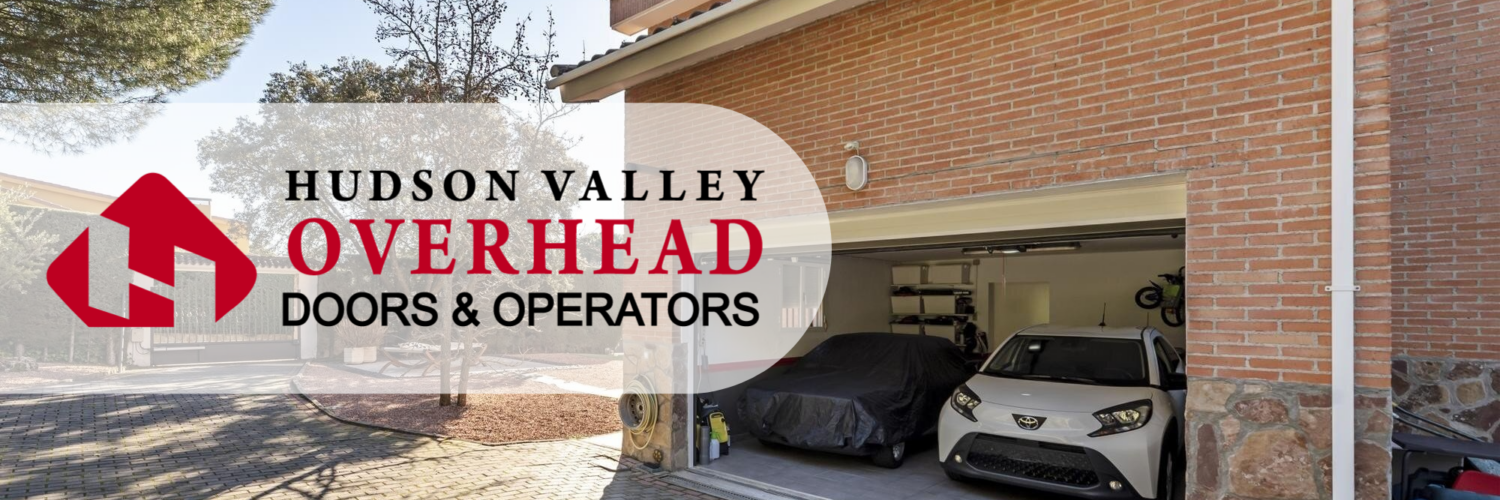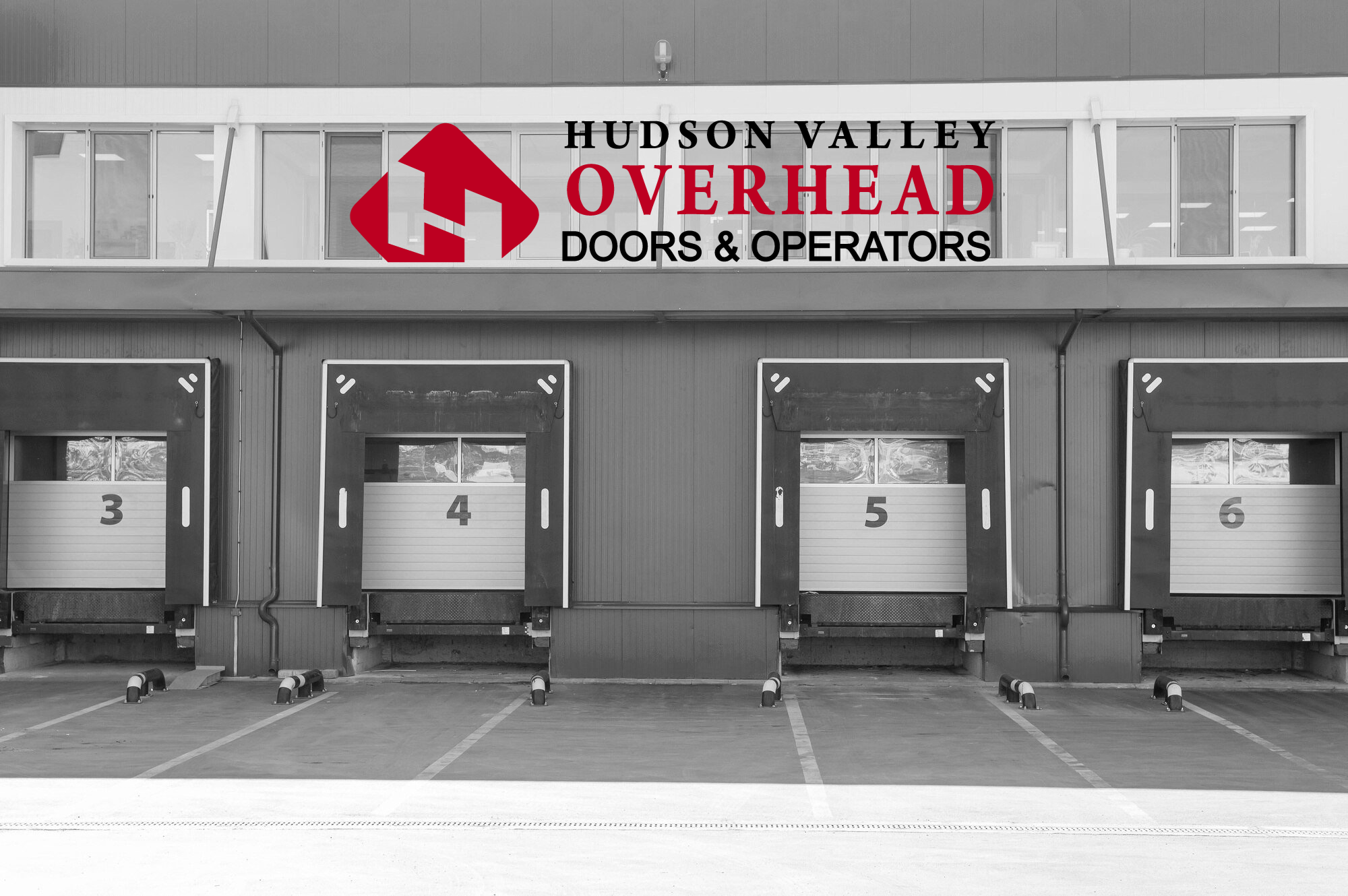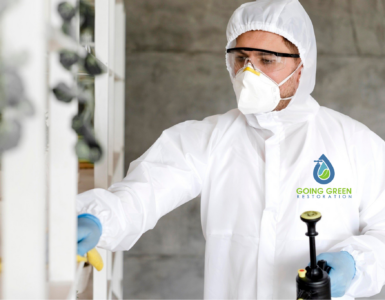The Overlooked Role of Access Systems in Commercial Real Estate
In commercial property development and management, value is typically assessed in terms of location, square footage, zoning compliance, and tenant occupancy. Yet one often underestimated factor is the quality and performance of access systems, particularly garage doors and roll-up gates. For properties in Dutchess County, NY, where industrial facilities, warehouses, and mixed-use commercial buildings are integral to the regional economy, the installation and maintenance of secure, compliant, and efficient garage doors can significantly influence overall property value.
Beyond providing a point of entry and exit, these access systems play a decisive role in the day-to-day operations of businesses that rely on speed, reliability, and security. A well-functioning garage door can reduce downtime, minimize maintenance disruptions, and streamline logistics for tenants who depend on timely deliveries and shipments. Conversely, outdated or poorly maintained systems often result in costly repairs, energy loss, and even safety liabilities, factors that can decrease a property’s desirability in competitive real estate markets.
Industry experts, including the team at Hudson Valley Overhead Doors & Operators, emphasize that garage doors in commercial environments serve far more than a functional role. They intersect with building safety, energy efficiency, tenant satisfaction, and long-term operational costs, each of which directly affects a property’s marketability and appraisal. In many cases, prospective tenants or buyers view access systems as an indicator of overall property management standards, making them a hidden yet powerful driver of both leasing potential and resale value.
Forward-thinking property owners in Dutchess County are beginning to treat access systems as strategic investments rather than afterthoughts. By integrating modern garage doors and roll-up gates designed with advanced insulation, automation, and security features, commercial real estate stakeholders not only protect their assets but also position their properties as future-ready in an evolving market landscape.
Safety Standards as Value Drivers
Commercial real estate investors and facility managers are increasingly attentive to garage door safety standards. These standards, established by regulatory bodies such as the U.S. Consumer Product Safety Commission (CPSC), ensure that installations reduce risks of entrapment and mechanical failure. For properties with multiple tenants, compliance with these standards is not only a matter of liability protection but also a critical point in valuation assessments.
In practice, adherence to garage door safety standards goes far beyond avoiding fines or meeting minimum regulatory thresholds. For commercial facilities in sectors such as manufacturing, warehousing, and logistics, a single accident linked to a faulty access system can result in operational shutdowns, costly lawsuits, and reputational damage. By contrast, properties that demonstrate proactive investment in safe, code-compliant access systems send a strong signal to prospective tenants that management prioritizes both employee well-being and long-term asset integrity.
Systems that undergo regular safety reverse system testing or include modern automated sensors demonstrate reduced risk exposure. These advanced features not only minimize the likelihood of accidents but also provide documentation that supports insurance claims and audits. In fact, appraisers and insurers often assign higher value to properties that document consistent compliance, particularly in industries with high safety oversight such as food processing, pharmaceuticals, or government contracting.
Forward-looking property managers in Dutchess County, NY, are beginning to recognize that safety compliance itself functions as a value driver. Incorporating automated fail-safes, reinforced roll-up gates, and scheduled third-party inspections helps reduce liability exposure while simultaneously enhancing a building’s marketability. For investors comparing multiple facilities, the presence of updated garage door safety systems can be the deciding factor between a property being considered a long-term strategic asset or a potential liability.
By treating garage door safety standards as a cornerstone of property management strategy rather than an afterthought, owners and operators can elevate both tenant confidence and property valuation in highly competitive commercial real estate markets.
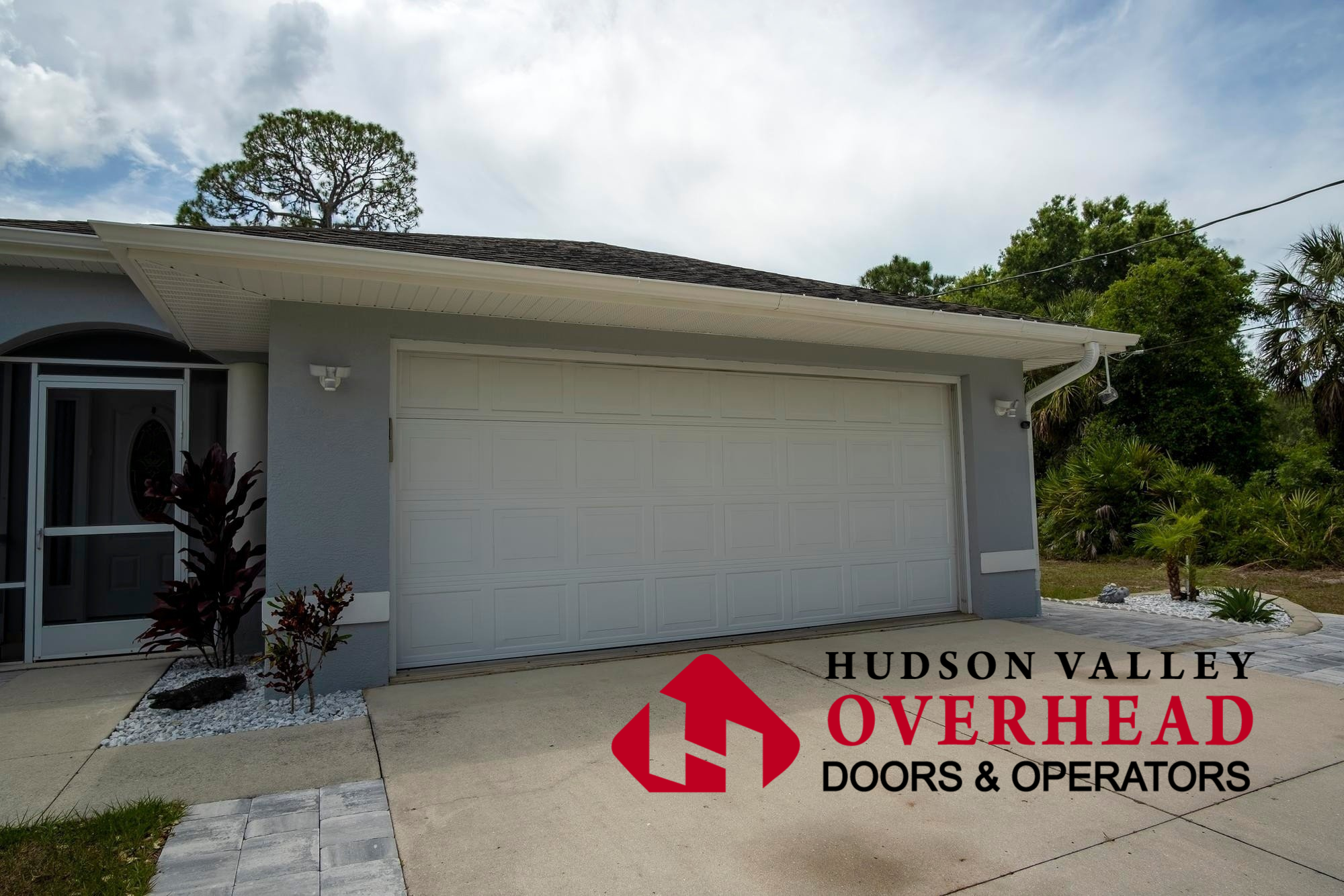
Building Code and Fire Safety Compliance
The International Code Council’s New York State codes outline strict requirements for fire safety, structural integrity, and egress concerning overhead and roll-up door systems. For commercial buildings, compliance with these codes is a baseline expectation. However, doors that exceed minimum standards, such as those with enhanced fire ratings or smoke seals, may provide owners with leverage during valuation or sale negotiations.
In practice, building code and fire safety compliance extends far beyond a regulatory checkbox. Commercial real estate stakeholders in Dutchess County, NY, are finding that properly rated roll-up gates and overhead doors can be the difference between securing long-term tenants or losing opportunities to competing properties. Tenants in industries with elevated risk profiles, such as warehousing, chemical storage, food processing, or high-traffic retail, are particularly sensitive to whether a property demonstrates proactive investment in fire safety compliance.
In facilities such as warehouses storing flammable goods, or retail complexes with high customer traffic, properly rated roll-up gates can directly influence how a property is perceived by regulatory agencies and prospective tenants. Properties that implement fire-rated roll-up doors and maintain documented compliance often achieve smoother inspection outcomes, faster leasing negotiations, and stronger insurance positions.
Going beyond minimum building code requirements also creates an advantage in competitive real estate markets. Features like enhanced fire-resistant coatings, intumescent seals, and automated closing mechanisms not only improve occupant safety but also demonstrate to appraisers and investors that the property is equipped for long-term resilience. In turn, this can translate into higher valuation, reduced liability exposure, and a stronger reputation for operational reliability.
Forward-thinking owners are leveraging building code and fire safety compliance not just as a protective measure, but as a value driver that positions their properties as premium, future-ready assets in the commercial real estate sector.
Security and Property Marketability
Access security remains a primary determinant of property desirability in the commercial sector. Roll-up gates for commercial properties are commonly deployed as part of integrated security solutions, offering a visible deterrent against unauthorized entry. In many cases, the presence of reinforced garage doors or roll-up gates is one of the first features evaluated by prospective tenants, insurers, and appraisers when assessing the overall security profile of a building.
For investors, secure access systems lower insurance premiums and reduce vacancy risk, as tenants increasingly demand robust security infrastructure. In fact, studies in the commercial real estate industry show that properties with enhanced security compliance experience higher tenant retention rates and fewer costly incidents related to break-ins or vandalism. By integrating access systems into broader security strategies, such as surveillance, controlled entry points, and alarm integration, property managers can create a safer environment that directly boosts long-term asset value.
In Dutchess County and across the Hudson Valley, commercial properties with upgraded security features, such as electronically managed roll-up gates or reinforced steel sectional doors, consistently demonstrate stronger rental performance and higher resale values. For distribution centers, logistics hubs, and high-traffic retail complexes, these features are not only an added benefit but a marketability requirement, as many tenants now include security standards in their lease negotiations.
Forward-thinking property owners are increasingly viewing access security as an investment rather than an expense. By installing modern roll-up gates for commercial properties that integrate with electronic monitoring systems, owners gain a dual advantage: a tangible reduction in liability and a measurable increase in property desirability. Over time, these investments often pay for themselves by reducing downtime, minimizing repair costs, and ensuring long-term stability in rental income streams.
When presented during valuation or sale negotiations, enhanced security and property marketability features can tip the balance in favor of a higher appraisal, faster transaction, and stronger competitive positioning in the commercial real estate market.
Operational Efficiency and Tenant Satisfaction
Property value is also tied to a building’s ability to support efficient tenant operations. For example, warehouse garage door safety is directly linked to the smooth functioning of logistics and distribution activities. In industries where every minute counts, a malfunctioning commercial garage door can delay shipments, increase labor costs, and disrupt supply chains. Conversely, doors that open and close quickly, operate reliably in varied weather conditions, and require minimal downtime contribute significantly to tenant retention and satisfaction.
In high-volume facilities such as fulfillment centers, food distribution warehouses, and manufacturing plants, the reliability of commercial garage door systems directly impacts a tenant’s ability to meet service-level agreements with clients. A property equipped with modern, high-performance garage doors is far more attractive to operators who depend on speed, safety, and uninterrupted workflow. For this reason, warehouse garage door safety has become not only an operational priority but also a factor that influences lease terms and long-term tenant commitment.
Investors recognize that high tenant turnover negatively impacts valuation, while properties that consistently meet operational expectations secure higher market positions. Stable occupancy rates, driven by satisfied tenants, create predictable revenue streams that strengthen property appraisal values. In competitive markets like Dutchess County, NY, where industrial and mixed-use spaces are in demand, the presence of efficient garage door systems often serves as a deciding factor for prospective lessees comparing multiple properties.
Regular commercial garage door maintenance, including track alignment and opener repairs, is thus a cost-saving measure with direct implications for asset value. Preventive care not only extends the lifespan of the equipment but also minimizes unplanned downtime that could otherwise erode tenant trust. Many facility managers now incorporate scheduled garage door inspections into their broader property management strategies, understanding that operational efficiency translates directly into financial performance.
Ultimately, properties that demonstrate a commitment to operational efficiency and tenant satisfaction position themselves as premium assets in the commercial real estate landscape. By ensuring that warehouse garage door safety and commercial garage door maintenance remain top priorities, owners can enhance tenant loyalty, reduce turnover costs, and secure higher long-term valuations.
Energy Efficiency and Sustainability Considerations
Energy efficiency has become an increasingly important factor in both valuation and tenant decision-making. In today’s commercial real estate market, tenants and investors alike place a premium on properties that minimize operating costs and align with sustainability goals. Insulated sectional doors, airtight seals, and automated closing systems help reduce heating and cooling loss—a significant concern in the Hudson Valley’s climate, where seasonal temperature swings can heavily impact energy consumption.
For multi-tenant commercial buildings, efficiency improvements translate into measurable reductions in utility costs, which can be highlighted during property appraisals. Lower operating expenses are especially attractive to logistics operators, retailers, and manufacturers who manage energy-intensive operations. Properties with energy-efficient garage doors not only stand out during lease negotiations but also command higher long-term value by demonstrating lower lifecycle costs.
Developers are also factoring energy-efficient doors into new construction projects to align with broader sustainability initiatives and regulatory trends. Green building certifications, such as LEED (Leadership in Energy and Environmental Design), often consider the efficiency of garage door systems as part of their scoring framework. As municipalities in New York continue to adopt more stringent energy codes, properties that already incorporate insulated and automated doors will maintain compliance more easily while reducing costly retrofits in the future.
Additionally, energy efficiency and sustainability considerations influence how properties are perceived by environmentally conscious tenants and investors. Companies in sectors such as technology, e-commerce, and consumer goods are increasingly committed to corporate sustainability reporting. Leasing space in facilities that feature insulated sectional doors and energy-saving systems allows these businesses to strengthen their ESG (Environmental, Social, and Governance) credentials while lowering costs.
Ultimately, prioritizing energy-efficient garage doors is no longer just an operational upgrade, it is a strategic investment that enhances tenant appeal, ensures compliance with evolving regulations, and boosts property valuation in competitive markets across Dutchess County and the Hudson Valley.
Regional Considerations in Dutchess County
The Hudson Valley region presents unique challenges for commercial property owners. Seasonal extremes, heavy winter snowfall, high summer humidity, and fluctuating temperatures, place considerable strain on overhead door systems. Local experts, such as Hudson Valley Overhead Doors & Operators, frequently stress the importance of selecting garage doors that can endure these environmental conditions while maintaining compliance with industry standards. Properties that adapt to the region’s climate not only safeguard day-to-day operations but also preserve long-term asset value.
For example:
- Warehouses in Spencertown often prioritize durable sectional doors designed to withstand snow loads and maintain internal climate stability. This focus on resilience directly influences operational efficiency during harsh winters, ensuring that logistics operations remain uninterrupted. Property owners can explore local expertise and product options through Spencertown garage doors, which highlight the specific adaptations needed for this part of Dutchess County.
- Retail centers in Poughkeepsie or Beacon may emphasize the visual design of storefront roll-up gates to complement pedestrian-friendly streetscapes. In high-traffic retail corridors, aesthetically appealing roll-up doors not only provide security but also enhance curb appeal, helping businesses attract more customers while supporting the property’s overall marketability.
- Industrial facilities along major transport routes require high-cycle automated doors to support frequent logistics operations. For distribution hubs and manufacturing plants, the ability of garage doors to open and close thousands of times without mechanical failure is essential to maintaining supply chain reliability. Owners who invest in these high-performance roll-up doors often see stronger tenant retention and reduced downtime costs.
In Dutchess County, NY, aligning garage door solutions with regional environmental demands and tenant needs has become a defining factor for long-term commercial real estate success. Properties that implement climate-ready garage doors, whether insulated, high-cycle, or aesthetically customized, are consistently better positioned in terms of valuation, compliance, and tenant satisfaction.
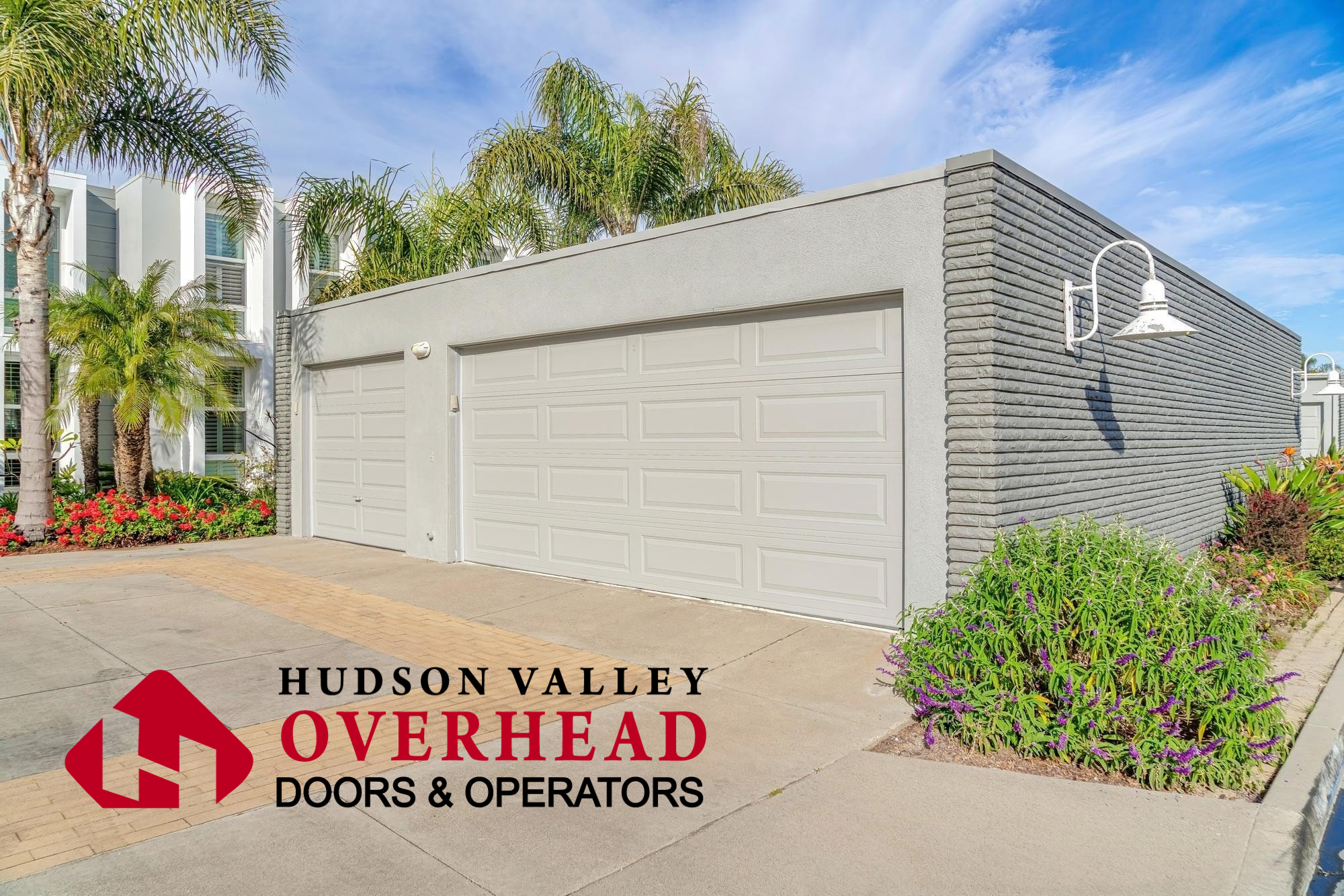
Technological Advancements and Future Value Projections
Automation and smart building integration are redefining expectations for commercial garage door systems. As technology continues to shape the commercial real estate market, property owners and investors are placing greater emphasis on access solutions that go beyond basic functionality. Modern installations increasingly feature:
- Remote monitoring and diagnostics to provide real-time visibility into the performance of garage doors and roll-up gates, allowing property managers to address issues before they escalate.
- Predictive maintenance alerts, which use data-driven insights to reduce unplanned downtime and extend the lifecycle of commercial garage door systems.
- Integration with centralized access control systems, ensuring seamless connectivity with broader building management systems (BMS) for enhanced security and operational efficiency.
These features not only reduce downtime and operational costs but also enhance the overall technological profile of a property. In competitive markets like Dutchess County and the Hudson Valley, where tenants expect reliability and security, advanced garage door automation can serve as a differentiating factor during lease negotiations.
As building management systems become standard in commercial real estate, properties equipped with intelligent garage door solutions are positioned to command premium valuations. Forward-looking owners understand that the integration of automation, IoT (Internet of Things) technology, and smart access systems is not just about convenience, it directly translates into reduced liability, stronger compliance, and increased tenant satisfaction.
Future value projections also indicate that commercial facilities with smart garage doors will align more effectively with evolving sustainability and ESG (Environmental, Social, and Governance) initiatives, since automated systems minimize energy loss, reduce mechanical strain, and optimize operational performance. For investors seeking resilient, future-ready assets, the presence of advanced commercial garage door technology is increasingly viewed as a benchmark of long-term profitability.
Liability, Risk, and Insurance Implications
Property owners and investors must also account for liability when evaluating the role of garage doors in overall property value. According to the National Fire Protection Association (NFPA), non-compliant or improperly maintained access systems contribute to thousands of preventable workplace incidents each year. These range from mechanical failures and entrapment hazards to fire code violations, all of which carry significant financial and legal consequences.
Insurers increasingly scrutinize compliance records when underwriting policies, and properties with well-documented maintenance and safety measures stand out as lower-risk assets. For owners, this means that keeping roll-up gates and overhead doors in compliance is not only a regulatory necessity but also a financial advantage. Well-maintained garage doors often translate into reduced liability exposure, stronger risk profiles, and ultimately, better policy terms.
A building equipped with compliant, regularly serviced roll-up gates and overhead doors demonstrates lower long-term risk. This not only reduces the likelihood of tenant disputes and workplace claims but also strengthens the property’s standing with insurers. In practical terms, this translates to more favorable insurance premiums, better coverage options, and fewer exclusions in commercial policies.
Over time, these advantages directly enhance net operating income (NOI) by lowering fixed costs and protecting revenue streams. Since valuation models in commercial real estate are heavily influenced by NOI, any reduction in insurance costs or liability risks contributes to stronger property valuation metrics. Investors analyzing two similar properties often place higher bids on the one with a documented track record of garage door compliance and maintenance because it represents a safer, more stable long-term investment.
Forward-thinking property managers in Dutchess County and the Hudson Valley are leveraging this connection by implementing scheduled garage door inspections, maintaining digital compliance logs, and working with certified contractors to ensure systems meet or exceed NFPA and CPSC standards. By framing garage door liability and risk management as a value-add rather than just a regulatory requirement, owners position their assets as resilient, insurable, and highly marketable in competitive real estate markets.
Long-Term Investment Perspective
For investors and developers in Dutchess County, the decision to prioritize high-quality commercial garage door installation is both a short-term operational choice and a long-term financial strategy. While upfront costs may be higher compared to standard installations, the cumulative benefits, including improved tenant satisfaction, reduced liability, enhanced energy efficiency, and stronger compliance records, make these systems a critical factor in property value assessments.
From an investment perspective, commercial garage doors should no longer be viewed as routine infrastructure but as a strategic component of asset management. Properties equipped with durable, compliant, and technologically advanced garage door systems consistently outperform comparable assets lacking these upgrades. The payoff is seen in lower vacancy rates, higher rental yields, and stronger resale values, all of which directly influence long-term return on investment (ROI).
Hudson Valley Overhead Doors & Operators, frequently consulted for their regional expertise, underscore that in today’s market, garage door systems must be viewed as strategic assets rather than peripheral infrastructure. Their influence extends far beyond day-to-day functionality, shaping the overall perception, performance, and market standing of commercial real estate. This perspective is particularly relevant in Dutchess County and the Hudson Valley, where environmental challenges, regulatory expectations, and tenant demands intersect.
For owners, the long-term investment perspective is clear: properties that integrate high-quality commercial garage door installation, paired with ongoing maintenance and modernization, are better positioned to withstand market fluctuations. They also demonstrate resilience in the face of regulatory changes and evolving tenant priorities, ensuring that the property remains competitive in an increasingly sophisticated commercial landscape.
In essence, commercial garage doors are not just access systems, they are value multipliers that directly contribute to the financial strength, safety profile, and sustainability of a building. Recognizing their strategic importance allows developers and investors to make smarter decisions that secure both immediate operational gains and enduring financial returns.

